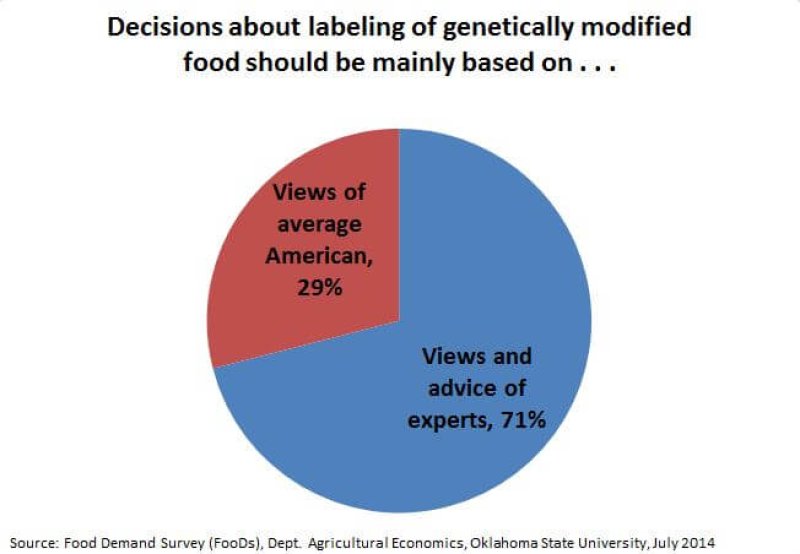I wanted to draw your attention to an aspect of the GMO labeling debate that you don’t hear a lot about. If you ask people whether they want GMO labeling, a majority will say “yes.” But that sentiment is not very deep. It misses a larger question: how seriously do consumers take their own views? Do they even want to express an opinion on the issue?
I polled a representative sample of over 1,000 U.S. consumers. I asked: “How should the issue of mandatory labeling of genetically engineered food be decided?” They chose one of six options.
The majority, 61%, of the respondents stated “by the U.S. Food and Drug Administration (FDA)”. Just over 10% of respondents stated “I don’t know” and only 5 percent of respondents stated “by ballot initiatives in each state”.
So, if forced to state an opinion, most consumers will express positive support for labels (absent any information on costs or consequences). But, consumers realize they aren’t knowledgeable on the issue and would defer to “experts” like those at FDA.
In fact, in July of 2014, I directly asked over 1,000 U.S. consumers whether GMO labeling decisions should be based on views of experts or views of average Americans. Over 70 percent said decisions should be based on views of experts.
Maybe that seems elitist. But, that’s the right word. These aren’t experts saying experts should decide. These are everyday people saying they want experts to decide. This is a reasonable position. Many of us could make our own retirement planning decisions, but instead we farm these decisions out to experts because it simply isn’t worth our time to become experts in everything.
The GLP aggregated and excerpted this blog/article to reflect the diversity of news, opinion and analysis. Read full, original post: Do People Really Want to Express an Opinion on GMO Labeling?































